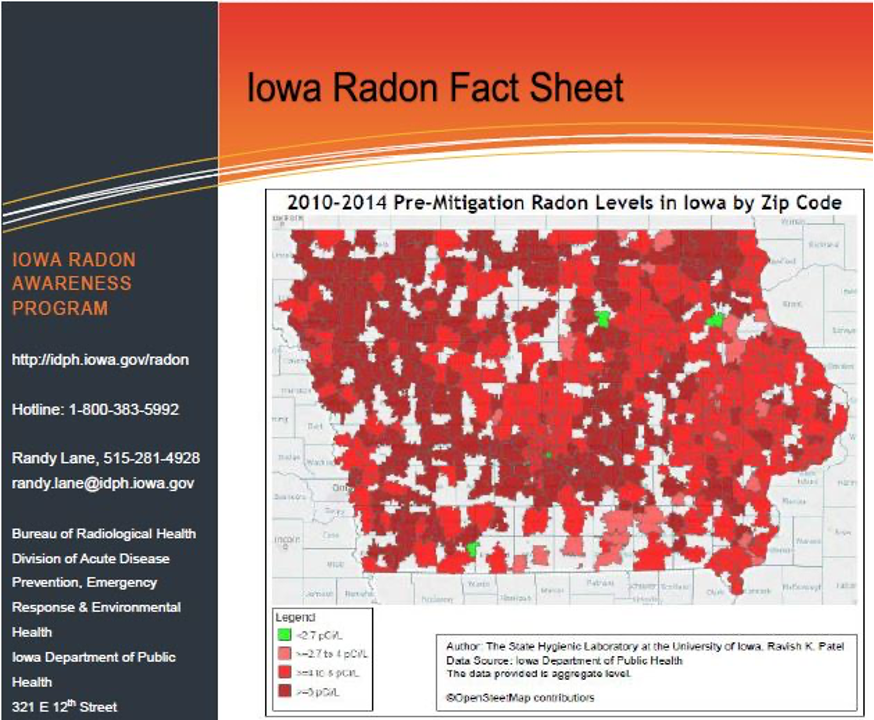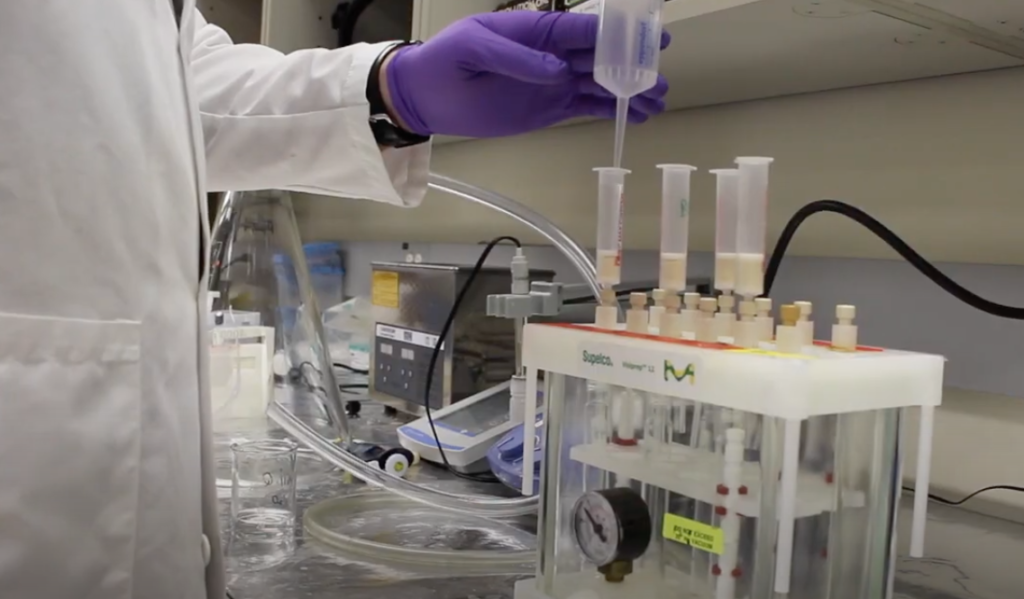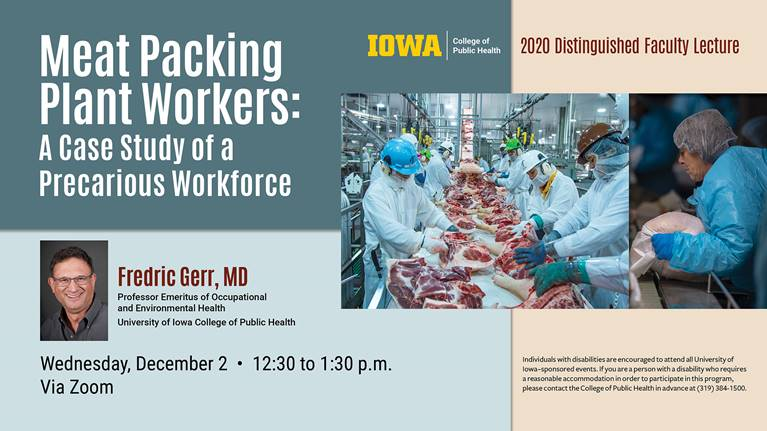Each year in Iowa, the American Lung Association and the Iowa Department of Public Health, in partnership with the U.S. Environmental Protection Agency, Region 7 and the Iowa Radon Coalition host the annual statewide Iowa Radon Poster and Video Contests.
Iowa citizens ages 9-14 are invited to create a radon poster that will increase public awareness of radon gas and encourage others to test their homes. A committee will select the top five winning posters from throughout the entire state of Iowa to receive monetary prizes. The school that submits the most entries wins $200.
Concurrently, high school students are invited to submit entries to the Iowa Radon Video Contest, for which three top prizes are awarded. As a member of the Iowa Radon Coalition, EHSRC Coordinator Nancy Wyland has participated in judging this event for the past three years in representation of the Center.
“The submissions are quite creative, and the students work hard on their entries,” Ms. Wyland offered. It’s a great event that engages young adults in environmental awareness and the dangers of radon, which is particularly prevalent in Iowa.”
Radon is a colorless, odorless, tasteless, radioactive gas produced by the natural decay of uranium in the soil. Exposure to elevated radon levels increases the risk of developing lung cancer. Radon is the leading cause of lung cancer among non-smokers and is the number one cause of death in homes, surpassing falls, poisoning, fires, choking, and drowning. As all Iowa counties are considered at high risk, this contest provides an opportunity to educate Iowa youth and the general public. By participating in this activity, students learn about radon and how to reduce their risk of exposure.
Wyland added, “Our Center has a longstanding research interest in radon and its environmental health impacts, so we’re proud to participate in this educational activity through our membership in the Iowa Radon Coalition.”
Poster Contest Winners can be viewed here: https://www.lung.org/local-content/ia/radon-poster
The Top Ten Video Contest Winners can be viewed here: https://youtube.com/playlist?list=PLsIpNVMVEwiiT0UM6ax1cHFBVWkAD65G2
The EHSRC has a longstanding history of radon research, including studies of residential radon in Iowa, research on outdoor concentrations, and testing of monitoring devices. Recently, EHSRC Member Bill Field and Co-PI Ka Kahe (Columbia University Health Sciences) received an NIH R01 titled, “Residential radon exposure and stroke risk: the REGARDS study.” This project will examine the association between radon exposure and stroke risk and to investigate whether geographic variation of radon concentration is related to the distribution of stroke rate in the U.S.


